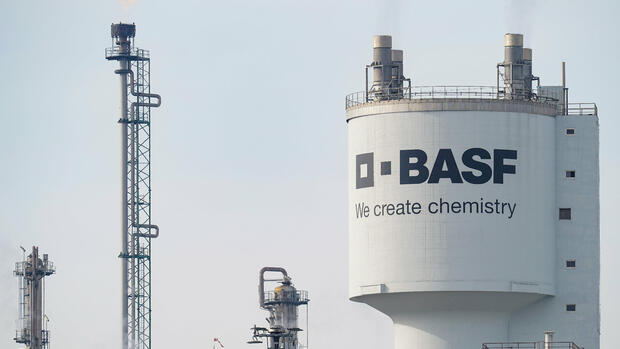Dusseldorf After a comparatively weak start to the year, the chemical group BASF is sticking to its goals for 2023. However, all hopes rest on an economic recovery in the second half of the year. “Don’t expect too much from the second quarter of this year,” said CEO Martin Brudermüller on Thursday in the run-up to the general meeting of the Dax group.
In the morning, BASF had reported a minus of 13 percent in sales development for the first three months, but was better than market expectations. However, the situation in the global economy is still very uncertain, the first half of the year was “hard and tough,” said the BASF boss. He spoke of “stormy times”.
The recent stabilization in demand is largely due to consumers asking for more services. Demand for consumer goods and the associated industrial production, on the other hand, continued to be subdued, and chemical production declined significantly worldwide in the first quarter.
Consumers continued to hold back, especially in Europe, due to high inflation, high energy costs and uncertain developments. The cautious outlook also scared investors. The BASF share price fell by four percent in the morning to just under 48 euros, making it one of the weakest values in the Dax.
The group’s hopes are pinned on the global automotive industry. “We’re not worried about the demand from this segment,” said Brudermüller. The situation is different in almost all other segments, especially in the ailing construction industry and in the consumer goods sector.
Brudermüller defends BASF’s China investments
In the first quarter, BASF sales fell to 19.99 billion euros. Adjusted profit fell 31.5 percent to 1.93 billion euros. That was significantly better than analysts had expected. However, this does not indicate a broad stabilization in the BASF business, which supplies almost all industries worldwide.
Only the agricultural business with seeds and pesticides developed strongly. The automotive industry was also a support for BASF in the first quarter. Sales in this segment increased by 5.7 percent to 1.9 billion euros, and profits also improved. In basic chemicals and plastics, earnings fell by more than 60 percent.
From a regional perspective, there is currently little impetus from Europe and the USA, according to BASF. The expected improvement in the second half of the year will primarily be driven by more dynamic demand from China. Against this background, Brudermüller defended BASF’s high investments in China. The group is building a new Verbund site in the south of the country to supply local industry with a volume of ten billion euros and is investing in battery chemistry for electric cars.
>> Read also: Indonesia’s president is campaigning for a billion-euro investment from BASF
Investors expressed concern at Thursday’s shareholders’ meeting about the risks involved, particularly in the event of a geopolitical conflict with China. For the first time, BASF is holding this year’s shareholders’ meeting again in person.
“The Russian attack on Ukraine has shown how quickly geopolitical nightmares can become reality,” said Arne Rautenberg, fund manager at Union Investment, with a view to the conflict between China and Taiwan. The fund company DWS also spoke of “risks”.
In his speech, Brudermüller expressed understanding for the questions. “We have analyzed the opportunities and risks of our investments in China in depth, also with external experts. As a result, we rate the opportunities for BASF as significantly higher than the risks,” he said.
China is already the largest chemical market in the world and, according to forecasts, will account for more volume than Europe and the USA combined in a few years. But BASF also sees North America as a growth market, buoyed by subsidies for the conversion of the local economy to green technologies.
Germany is a concern for BASF as a location
“A strong foothold in growth markets compensates for the lack of growth in Europe. And this is how we finance our investments for a climate-neutral future worldwide,” said Brudermüller to the shareholders. This means that the money that BASF needs, above all for the conversion of the huge Verbund site in Ludwigshafen, is earned abroad.
“We are increasingly worried about our home market. Profitability is nowhere near what it should be,” said Brudermüller. In 2022, BASF in Germany posted a negative operating result of around 130 million euros.
>> Read here: High energy costs, falling margins – BASF in the Handelsblatt balance sheet check
The group reacted to this with cost reductions and job cuts. Very energy-intensive productions such as ammonia are permanently shut down. The shutdown and the technical steps taken to save natural gas paid off in the first quarter: BASF’s energy costs fell by 700 million euros globally in the first quarter. Basically, the level of gas prices is currently three to five times higher than the average from 2015 to 2020.
The group continues to examine various options for the long-planned separation from the oil and gas group Wintershall Dea. “An IPO by Wintershall Dea remains our preferred alternative,” said Brudermüller. “A sale to investors would also be conceivable.” Many approvals are still required for the exit from authorities and joint venture partners. “But we are very confident that we can do it in the foreseeable future.”
More: The good years are over for Merck
